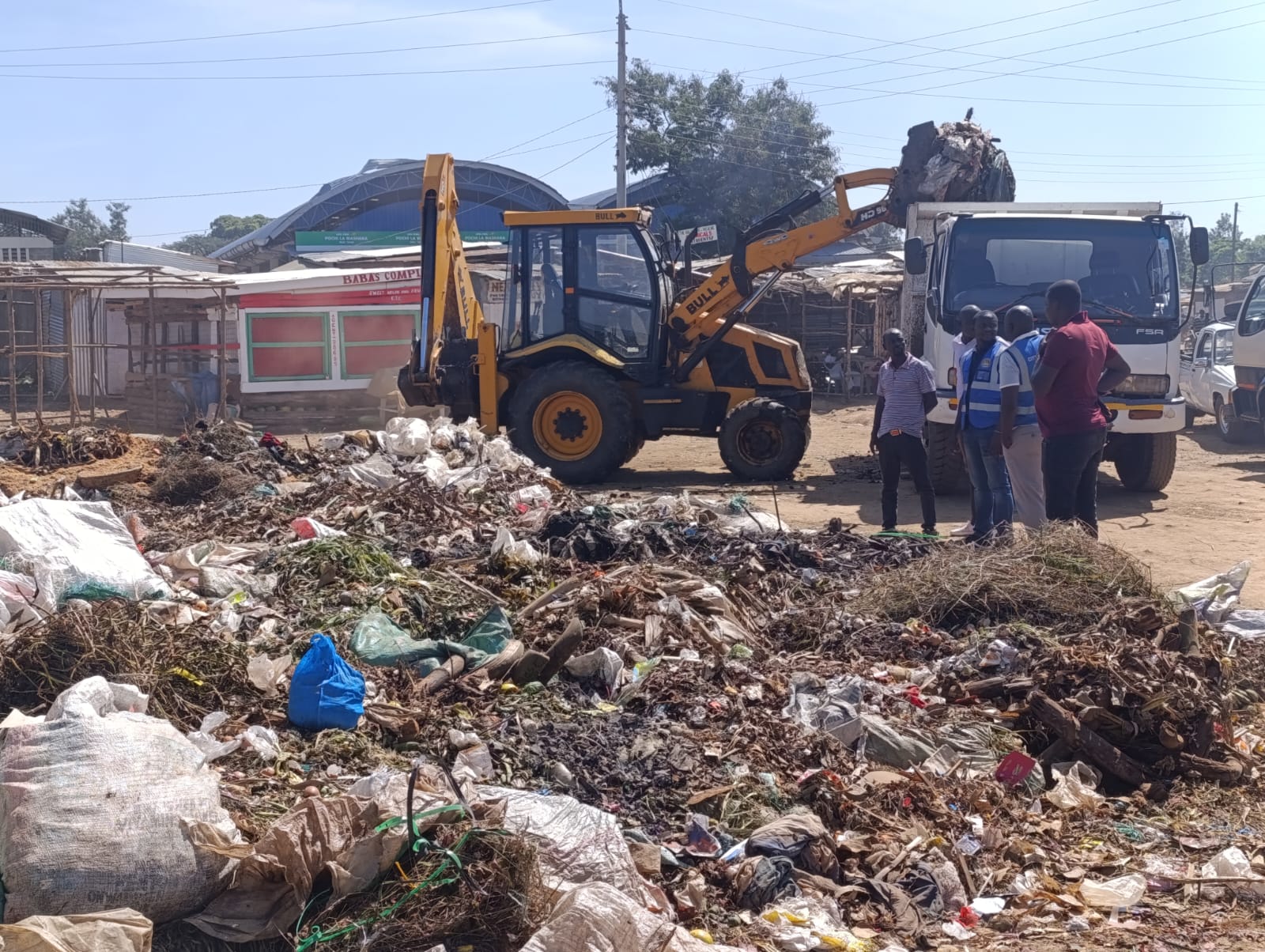
On a Sunday when the air should be buzzing; buyers and traders haggling, the clatter of goods being offloaded and the colourful movement of thousands through the stalls, Kibuye Market, one of East Africa's largest open-air marketplaces, stands eerily quiet.
The extensive grounds, usually accommodating over 10,000 traders, are now silent following an indefinite closure order issued on Friday by Kisumu city manager Abala Wanga due to sanitation concerns.
This shutdown has disrupted the livelihoods of thousands who depend on the market for their survival, forcing them to relocate to alternative spaces to continue their businesses.
"This is our source of income," said Mary Onyango, a hairdresser who has worked in the market for over a decade. She adds that they were caught off guard by the decision.
Some traders dealing in second-hand clothes have moved outside the market, next to the main road, displaying their wares in the open air – posing risks to both the business people and their customers.
The majority have moved to the Uhuru Business Park space, which they claim is already severely overcrowded.
Others have dispersed to various markets within the city, including Jubilee Market, Corona and Kosao.
"We have moved here, but there is no space," Onyango said.
Traders have to pay an amount ranging from Sh2,000 to Sh10,000, depending on the size and location of the space, as well as for storage.
In the public notice issued, Wanga stated that the decision followed a detailed inspection that revealed serious public health hazards posing a direct threat to the traders and the public.
The conditions also increase the risk of spreading cholera, which was recently reported in parts of the city and neighbouring regions.
Wanga detailed several issues, including a lack of clean and safe water supply, improper solid waste management, unsanitary ablution blocks and toilet facilities, open and unsafe cooking practices within the market, blocked drainage systems and encroachment on access lanes.
These conditions, he emphasised, present an imminent risk to public health, particularly during the rainy season when the transmission of waterborne diseases is heightened.
"To this effect and pursuant to Section 117 of the Public Health Act Cap 242, read together with Cap 254 and the regulations thereunder, the public health department has directed the immediate cessation of all operations at Kibuye Market until further notice."
This order will remain in force until actions are undertaken.
These include the provision of adequate, clean and safe water supply to the market, the design and implementation of a solid waste management system for effective waste collection and disposal.
Others are the rehabilitation and regular maintenance of all toilet and sanitation facilities, the regulation and restructuring of eateries to meet public health standards (including medical certification of food handlers) and the removal of all structures and stalls obstructing drainage systems and access lanes.
"Further, we wish to inform the general public and all traders that, during this temporary closure, the market day for Kibuye Market will be relocated to Uhuru Business Market."
Wanga said the city has implemented adequate measures to facilitate a smooth transition and ensure minimal disruption to trading activities.
However, some traders have dismissed the poor sanitation claims, suggesting that the closure is due to leadership disputes.
They claimed all was well within the market until wrangles began, which they believe has now led to the market's closure.
Judith Matengo, the market chairperson, acknowledged that internal conflicts within the market have been a significant challenge, resulting in injuries and even reported deaths.
But the directive asking traders to seek alternative spaces at Uhuru Business Market, particularly those dealing in perishable goods, is already posing challenges.
"Some don't have the money to pay rent for new stalls and have resorted to selling by the roadside, which poses a significant risk and threat to their lives," Matengo said.
She appealed to the authorities and relevant bodies to intervene and resolve the situation.




![[PHOTOS] Gachagua warm reception in Nyandarua](/_next/image?url=https%3A%2F%2Fcdn.radioafrica.digital%2Fimage%2F2025%2F04%2Fc2a8c64d-5577-4768-a0ac-513c8876c288.jpeg&w=3840&q=100)






